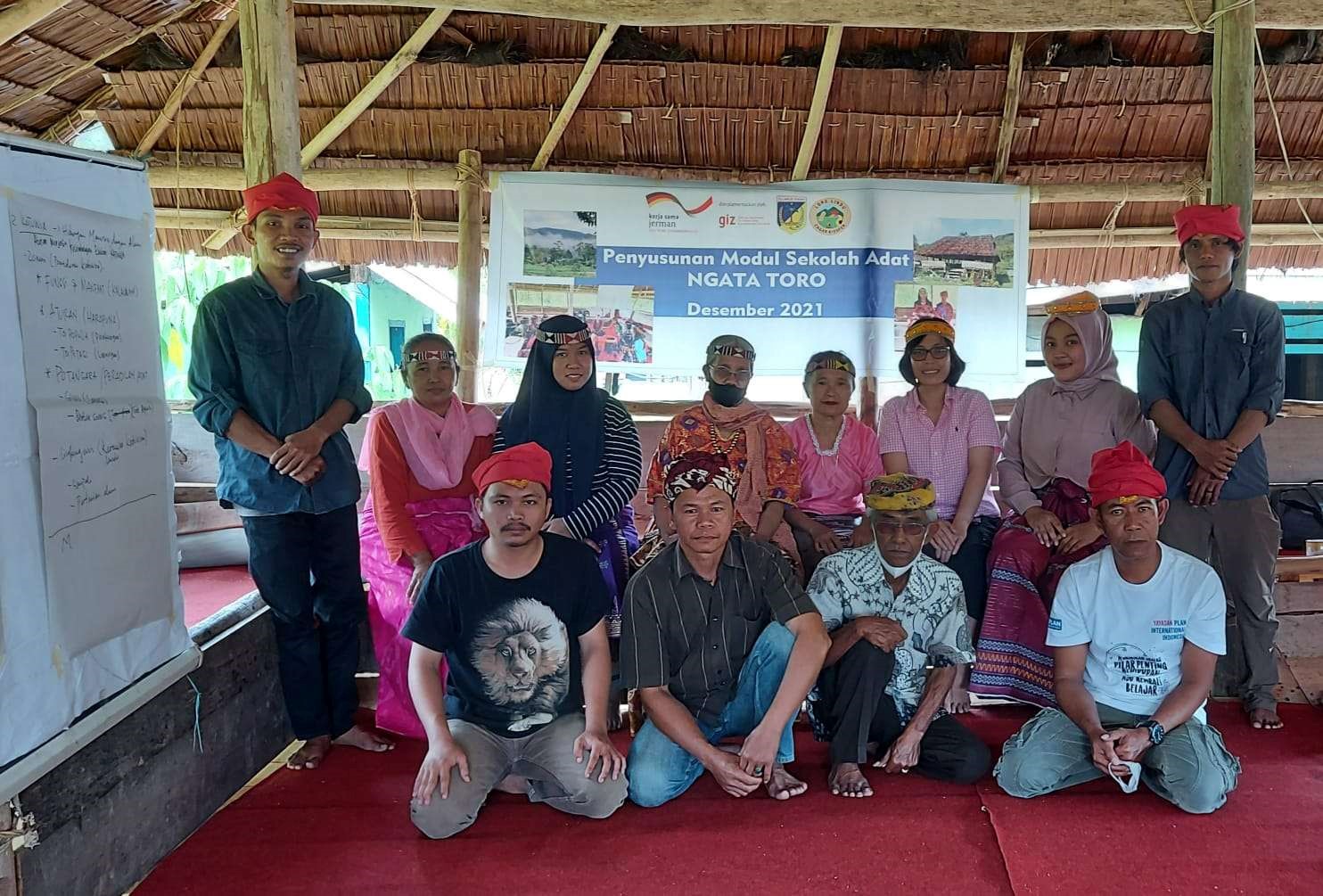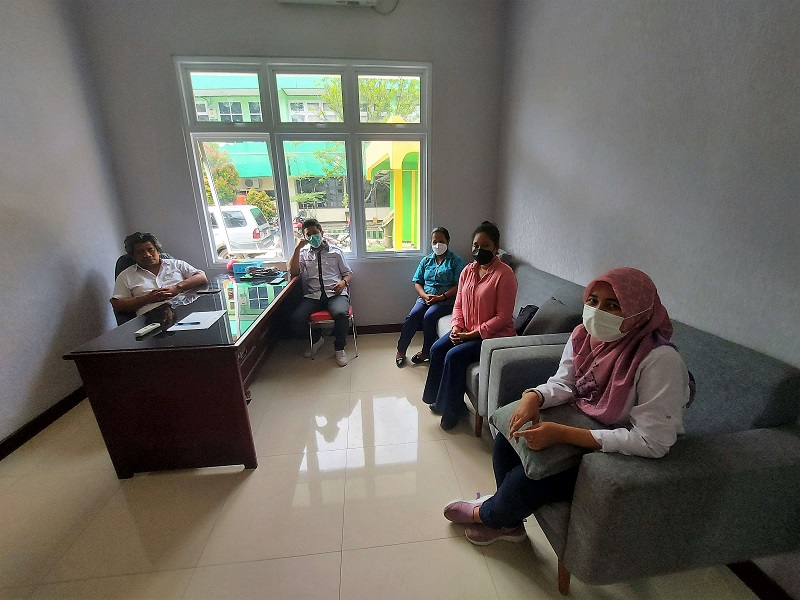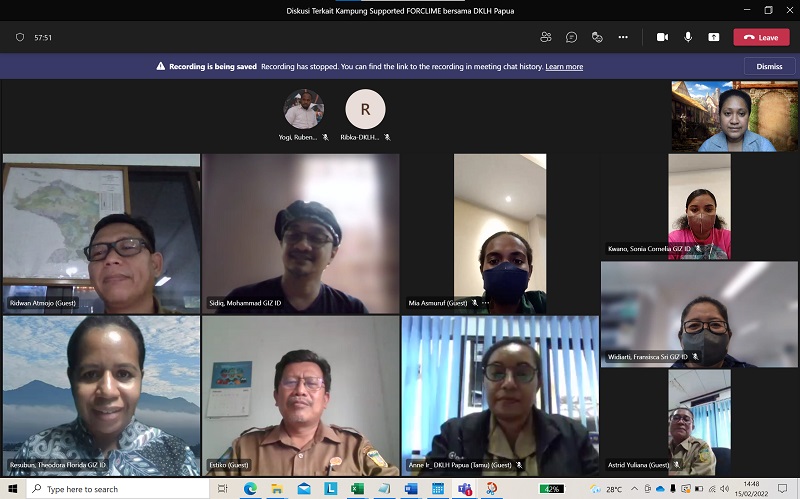FORCLIME
Forests and Climate Change ProgrammeTechnical Cooperation (TC Module)

Select your language

The village of Toro, which is located in the Lore Lindu Biosphere Reserve area, has a Customary School that teaches local languages, as well as the making of traditional crafts, customary law, cultural traditions and local wisdom in relation to the management of natural resources in order to maintain ecological balance for the younger generation. In an effort to strengthen the role of its Customary School, the Toro Village Customary Women's Organization (OPANT) has developed a teaching module that can be used as a guide for the development of learning tools, from the planning and management of study activities to the setting of regulations for teachers. This teaching module should prove highly useful for the Customary School teachers, who currently number around 10 persons, as each teacher has different skills, including Katuwua (the order of human relations with nature), Hintuwu (the order of human relations with humans), Pomebila (manners within the family and society), art and culture, traditional institutions and crafts.
The new Customary School teaching module was developed from 9 - 16 December 2021. Moreover, a series of activities was implemented during the development of this teaching module and these culminated with a tree-planting session at the river nearest to Toro’s rice fields. The planting session was held on 17 February 2022 and inaugurated various student activities in sustainable natural resource management, the conservation and protection of local plant species, and the protection of rice fields from the danger of being flooded by nearby rivers.
The tree planting session got underway with a traditional village cleansing ceremony known as Potapahi Tana or Popee Hiaka, which was led by Toro’s customary leader, Andreas Lagimpu. The ceremony began with prayers being offered by local leaders and continued with lunch, which was eaten with traditional cutlery known as dulang. At the end of the ceremony, the attendees held a mass prayer for health and abundant harvests, and this was followed by expressions of gratitude offered by traditional leaders, which involved the carving of chickens in the river.
The series of planting activities was brought to a conclusion by the Head of OPANT, Rukmini, who expressed the hope that FORCLIME would continue to support activities within Customary Schools, including the development of student activity worksheets, natural disaster management training for students, plastic waste management training for students and the community, and capacity building for teachers.
As a follow-up to the development of this teaching module, the Customary School will conduct a six-month trial of teaching materials. After these materials have been tested, improvements and revisions will be made to them so that the modules contained therein can be used as example materials by other villages.
For more information, please contact:
Ismet Khaeruddin, Senior Advisor for the Biodiversity Focal Point for KFW Forest Program 3 and Provincial Coordinator for Central Sulawesi
Fikty Aprilinayati, Advisor for Sustainable Forest Management and Biosphere Reserve Management

In order to prepare a selection process for facilitators who will work in supported villages, the Papua Natural Resources Conservation Center (BBKSDA) and FORCLIME held a joint meeting on 16 February 2022 at the BBKSDA Office in Jayapura City, Papua. In addition to the FORCLIME Papua Team, the meeting was also attended by the Head of the Program and Cooperation Unit, Mrs Rian Agustina, SpPt., M.I.L., as well as the Head of the Utilization and Service unit, Mr Julius Palita, S.Hut. and Mr. Chandra Irwanto Lumban Gaol, S. Hut., Forestry Extension Officer for Papua BBKSDA. This meeting was organized in order to prepare for the implementation of FORCLIME activities that will support the work of BBKSDA Papua in two selected villages within the CA Cycloop - Youtefa area, specifically the villages of Tablasupa and Dosay in Jayapura Regency.
In order to facilitate the implementation of joint activities across these two villages, village facilitators will be recruited who will be responsible for providing assistance and monitoring the implementation of said joint activities. A number of younger candidate facilitators will be selected who have a technical background in forestry and/or natural knowledge. In addition, a number of facilitators who have experience in mentoring activities will be working in the two BBKSDA target villages and will help to develop and implement the Community Self-Subsistence Forestry Extension Program (Penyuluh Kehutanan Swadaya Masyarakat - PKSM).
After potential facilitators have been sourced and the selection processes have been completed, recommendations for village facilitators are set to be submitted in early March.
For more information, please contact:
Rut M Ohoiwutun, Junior Advisor for Community Forestry and Customary Forest, Papua
Mohammad Sidiq, Strategic Area Manager, Sustainable Forest Management and Coordinator for Papua and West Papua Provinces

The Forestry and Environment Service of Papua Province (DKLH Papua) and FORCLIME recently agreed to designate Babrongko Village in Distrik Ebugfauw, Jayapura Regency as a joint target village. In line with this decision, DKLH Papua and FORCLIME held an online meeting on 15 February 2022 in order to discuss the various joint activities that will be carried out in the village. The meeting was opened by the Head of Forestry Planning Division of the Forestry and Environment Service of Papua Province, Dr Estiko Tri Wiradyo, SH. M.Si. During the meeting, after Babrongko had been designated as a target village, a follow-up plan was discussed which included the following elements:
- Field visits in order to collect potential data and socio-economic-cultural data as a basis for program development.
- Recruitment of village facilitators.
- Support from FORCLIME relating to group organizational development, group capacity building for potential product development and ecotourism-related promotions.
The village of Babrongko has been assisted by DKLH Papua since 2012. During the intervening years, a number of programmes have been implemented in conjunction with the local community, including the mapping of an 18 ha sago forest covering the villages of Bhaborongko and Simporo, and the production of Kombo wood, which is used to produce bark for carving. In addition, DKLH Papua has also mapped several customary areas, including customary forests in Babrongko.
The village of Babrongko has various development potentials, including ecotourism. In this regard, the village is host to the playing ground of the famous Cenderawasih bird (the bird of paradise), has a natural sago forest that can be developed for trekking, as well as a lake landscape that boasts views of the Cyclops Mountains. In addition, the area is also home to fascinating traditional arts and culture. Babrongko also has freshwater fish potential and is particularly suited to the snakehead fish, an endemic biota of Lake Sentani which can be farmed.
This coordination meeting will be followed up by a field visit during which potential data and socio-economic-cultural data will be collected and the recruitment process for village facilitators will be implemented.
For more information, please contact:
Theodora F. Resubun, Advisor for Sustainable Forest Management and Coordinator for Papua Province
Mohammad Sidiq, Strategic Area Manager for Sustainable Forest Management and Coordinator for Papua and West Papua Provinces
 |
Supported By: |
  |